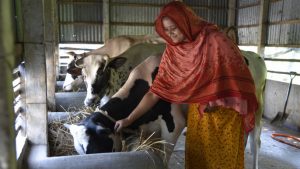The Australian Competition and Consumer Commission (ACCC), which administers the code, said this week Brownes Foods Operations Pty Ltd, trading as Brownes Dairy, had paid $22,200 for code infringement notices against two of its first published milk supply agreements.
It had alleged Brownes’ standard-form exclusive supply agreement and exclusive supply A2 milk agreement, published by the 2pm June 1 deadline last year, failed to include a supply period end date.
Both published agreements allowed Brownes to unilaterally vary its agreement with dairy farmer suppliers in circumstances other than specified in the code and without the variations being in writing, the ACCC had claimed.
The published agreements also allowed Brownes to unilaterally reduce the minimum price paid for milk in circumstances other than specified in the code, it had claimed.
The ACCC said Brownes has addressed the concerns with its 2021-22 standard-form milk supply agreements published last month.
It has also undertaken to write to farmers it had contracts with, advising it will only exercise its rights under existing agreements to the extent they are consistent with the terms of these new agreements, the ACCC said.
“It is critical that processors take active steps to ensure compliance with the dairy code so that farmers have the certainty and transparency in relation to milk supply agreements that the code is intended to provide,” said ACCC deputy chairman Mick Keogh.
“One of the requirements of the dairy code is that processors ensure their milk supply agreements are compliant before publishing them on their websites and in this instance Brownes Dairy published two supply agreements that were allegedly non-compliant,” Mr Keogh said.
The dairy code of conduct introduced on January 1 last year aimed to resolve a negotiating disparity between dairy farmers and milk processors.
It followed a tumultuous period in the dairy industry which included price step downs forced on Eastern States’ dairy farmers and Brownes declining to take up contract options with some suppliers in WA and letting them go with minimal notice.
Requiring processors to publish standard form agreements theoretically gives dairy farmers a month to compare prices and conditions on offer and to choose an agreement which best suits their enterprise.
Last year the ACCC warned the Australian arm of Canadian dairy giant Saputo, which produces many of the prestige cheese brands marketed in Australia, after a technical hitch caused it to miss the publishing deadline for its first supply agreements.
South Australian milk powder producer Union Dairy paid a $10,500 penalty last year after the ACCC alleged it had asked farmers to supply details of herd size and who they supplied before providing access to its standard form agreement.
The company, which only has exclusive suppliers in south-east South Australia and south-west Victoria, had also failed to publish a non-exclusive supply agreement last year, the ACCC had claimed.













